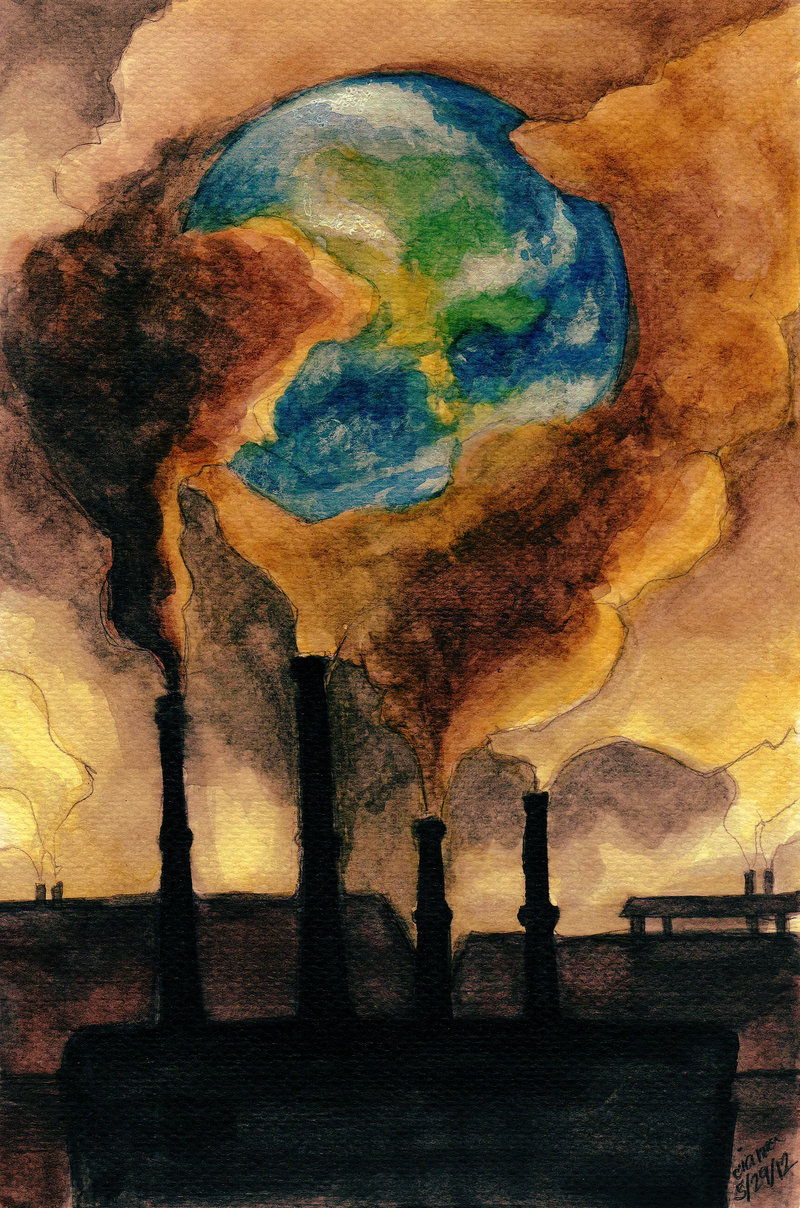 Bright sunshine in a near-cloudless sky this Tuesday afternoon on California’s north coast, but all tempered by a crisp-chilled ocean breeze.
Bright sunshine in a near-cloudless sky this Tuesday afternoon on California’s north coast, but all tempered by a crisp-chilled ocean breeze.
Although climate change is obvious, most Americans appear ho-hum about it.
A new poll out this morning displays our business-classic laissez-faire attitude toward it:
However, fewer than one in four Americans are extremely or very worried about it, according the poll of 1,058 people.
About one out of three Americans are moderately worried and the highest percentage of those polled — 38 percent — were not too worried or not at all worried.
Despite another survey reported just two weeks ago, which indicated ‘…70 percent of Americans now believe that global warming during the last 40 years is real and supported by solid evidence…‘
(Illustration found here).
So we believe the earth is burning up, and will eventually cook all of us in various ways and fashions, but right now Americans just don’t “feel worried personally” — a ‘lukewarm‘ sensibility at the way-best.
Currently, climate change apparently is not a major-topic voting issue, and there’s no real political demand yet, even on an election day, like today.
A heavy-duty grassroots kind of approach is needed, most likely, to get the American public to strongly demand the shit required to slow-down, then halt climate change. Or something…
A big meeting coming up for that ‘something‘ — in Paris starting Nov. 30, another episode of the continuing UN program started in 1992 — officially, the 21st Conference of the Parties (COP-21) of the United Nations Framework Convention on Climate Change — as 190 nations gather for two weeks to wrestle the terrible ways to get a handle on climate change. A good history of the goings-on can be found here. Another good, detailed analysis of the meeting at HuffPost.
Supposedly, the mission is to figure out how to reduce global emissions — like carbon dioxide and methane — quick enough to keep us at/or preferably-below 2-degrees Celsius before the end of this century.
Most reports are that ain’t going to happen. A good account of that situation from last June at the Washington Post, and another from the Union of Concerned Scientists a couple of years ago.
Meteorologist Eric Holthaus has a most-interesting, and most-realistic piece at Slate this afternoon on the actual makings of our attitude toward climate change in conjunction of the upcoming Paris meeting::
Given what we’re up against, even cautious optimism on climate change is momentous.
The science of climate change is fairly simple, and it’s backed up by decades of observations: Human activities are releasing enough heat-trapping gases to shift weather patterns and fundamentally change the chemistry of the ocean.
It’s going to take a Herculean effort to reverse the process—even though doing so would be worth it by nearly every measure.
Reducing emissions quickly is the best solution, but after decades of delay, it’s getting really, really hard to make the numbers work.
That’s why I’ve been really pessimistic about humanity’s chances of preventing a worst-case climate change scenario for a while now.
I mean, really pessimistic…
…
We’ve never faced a problem like this in the history of human civilization, and it would be naïve to think that solving it will be easy.
The scale of the problem is truly daunting, and it has prompted life-changing despair in many climate scientists.
The blunt fact is that the world has done less than nothing to tackle climate change since it became a political issue in the 1990s: Global emissions have actually risen 40 percent since the previous international climate treaty in 1997 and very likely will keep rising until at least 2030 no matter what happens in Paris.
The optimism is in supposedly, hopefully limiting horrific catastrophe:
Admitting defeat on 2 degrees, in this sense, would be a great victory in Paris — as long as it’s the beginning of a discussion about how to cope with the implications.
A refrain the last decade: ‘cope with the implications.’
If Americans can only move from lukewarm to warm and then quickly to hot…